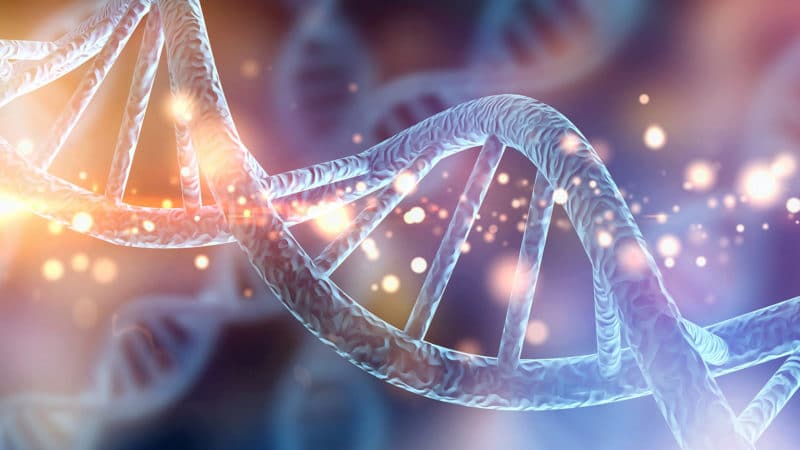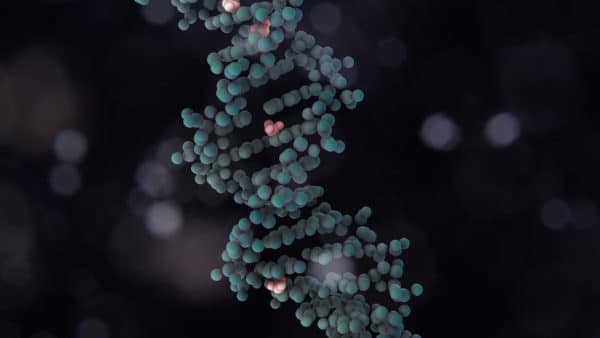HOME > reinvent healthcare podcast > The Next-Best-Health Discovery: Understanding the Epigenome & Human Gene Expression
The Next-Best-Health Discovery: Understanding the Epigenome & Human Gene Expression
By Ritamarie Loscalzo

I read an article in National Geographic recently that made me think of the changing world of healthcare. If you are a functional healthcare provider or a person looking for the next-best-health- discovery, it may be of interest to you too!
It discussed a book NG has published called The Great Age Reboot-Cracking the Longevity Code for a Younger Tomorrow. One of its authors is Michael Roizen, M.D., the chief wellness officer emeritus at the Cleveland Clinic and professor at the Cleveland Clinic Lerner College of Medicine.
The article said, and I quote, “Lifestyle and genetics are intertwined, in that your lifestyle choices influence the way that many of your genes function…..Studies of human gene expression show that if you choose to make certain lifestyle changes, you can influence whether your genes are “on” or “off.”
This is not news to me, nor may it be news to you. What did catch my attention is that every day this “news” becomes more mainstream.
Are you prepared for how it will change healthcare; change your practice?
Long ago I made nutrigenomics and epigenetics part of my Nutritional Endocrinology Practitioner Training (NEPT) program. I also made it available to clients in my Empowered Self-Care Lab. I could see how wide-spread genetic testing availability would change the face of healthcare and how important it was to make it part of my practice.
In my podcast episode, Genetic Testing as a Tool for Creating Results-driven Healthcare Plans, I discuss how genetics has impacted functional healthcare practitioners. I name the single nucleotide polymorphisms (SNPs) I have found that grab the attention of my clients and in turn help them to establish meaningful habits that can change their health outcomes.
For some, just understanding what epigenetics is all about and the mechanics of gene expression is enough. It brings home the fact their diet and lifestyle really DOES have an impact on how genes are expressed which directly impacts health, especially with age.
“Genes tell us how much we can get away with in our daily choices.”
Dr. Ritamarie Loscalzo
Gene Expression
I once read a quote by a researcher that basically said, “Anything a person says about genetics is over-simplified. “ And it’s so true. Genetics is an incredibly complex topic that is difficult to break down into manageable bites.
So at the risk of oversimplification….
Gene expression is when the information stored in DNA is converted into instructions for making proteins or other molecules. It is an on/off switch that not only controls when proteins are made but how much of the protein or other molecules are made.(1)
(For the sake of my sanity, I’m focusing on DNA that codes for protein.)
The two key steps involved in making the protein are transcription and translation.(2)
DNA resides in the nucleus of a cell. If you were to stretch it out it would be about 6.5 feet long! Imagine what it would be like if gene expression required the entire length be read every time a small segment was needed to produce a specific protein or molecule?
Transcription solved that problem.
Transcription is when an enzyme within the nucleus called RNA polymerase forms messenger RNA (mRNA). mRNA then makes a copy of the segment of the DNA that contains the instructions (coding) for making the needed protein.
To avoid possible confusion, this new strand of mRNA passes out of the nucleus into the cytoplasm where translation takes place. Translation happens when this “transcribed” mRNA is carried to the protein-making factories of the cell, ribosomes. There the mRNA instructions are read by a carrier molecule called transfer RNA (tRNA) which leads to the production of whatever protein the original DNA was coded for.
Epigenetics
In the study of genetics, researchers are looking at changes in gene activity or function as a result of direct alterations to that sequence of DNA.
Epigenetics looks at gene activity or function NOT associated with any changes in the DNA sequence. Researchers want to understand the connections between environmental factors and behaviors and how that influences the way genes work.(3)
Epigenetic changes are normal and happen throughout a person’s life. In fact, they are critical. (4)Virtually all 200 types of cells in the human body contain the exact same genetic information, yet they develop and behave differently. This is epigenetics in action.
It is needed in order for the human body to function.
The Epigenome
Epigenetic interference is different. It is not a pre-programmed event and is caused by some external input such as exposure to medications, car exhaust, heavy metals, chemicals, and yes, even food.(5)
Several epigenetic processes involve chemical compounds that attach, or bind, to DNA or to proteins that package the DNA within cells. When a chemical compound binds to DNA, it affects how the sequence is read and can determine if a gene is switched on or off, selecting which proteins are made and how much.(6)
Two of the most studied biological processes that involve this is methylation and histone modification which I cover in my blog, Methylation: How to Identify Genetic Vulnerabilities and Optimize Health.
When these compounds attach to DNA and modify its function, they are said to have “marked” the genome and are referred to as epigenomes. Epigenomes don’t change the sequence of the DNA but rather how the cells use the DNA’s instructions.
A person’s epigenome can inhibit or enhance gene expression and studies have demonstrated that changes in the epigenome can cause, or result from, disease.(7) However, this can also have a positive impact on a person’s overall health, depending on how their gene expression has been influenced.
Currently, in the field of epigenomics, researchers are trying to chart the locations and understand the functions of all the chemical tags that mark the genome. Epigenomic maps may someday enable practitioners to determine an individual’s health status and tailor a patient’s therapies based on their genetic needs.(8)
Using Genetics to Your Advantage
Yes, genetics is a complicated topic, and science may be a long way from mapping the epigenome, but the body is constantly giving us clues as to what may be wrong and how to achieve optimal health.
Building a lifestyle and diet that best suits an individual requires dedication and education. It takes the commitment of both the practitioner and the client.
There is no “one” best diet regardless of what food religions may tell you, and determining if and what foods a client may be sensitive to can be a long process. An elimination diet takes guidance and perseverance.
One thing is for certain, knowing how to read the clues the body is giving and understanding how to use genetics to navigate the path to optimal health outcomes is the future.
I can help you get there!
If you are a practitioner looking to the future of healthcare, consider my Nutritional Endocrinology Practitioner Training (NEPT) program. It is a proven method for bringing real answers to clients who have long suffered with chronic conditions that have been non-responsive to the typical solutions offered by our broken healthcare system.
If you are a client that has been unable to find help with health conditions that have long plagued you, or possibly someone looking to prevent the common illnesses that 92% of the western world now suffer from, consider my Empowered Self-Care Lab.
The next-best-health-discovery is YOU! Give yourself what you need to live your greatest life. This world needs you at your best!
References:
(1)Gene Expression
(2)Translation: DNA to mRNA to Protein | Learn Science at Scitable
(3)Epigenetics
(4)We are what we eat. The link between diet, evolution and non-genetic inheritance – PMC
(5)The Impact of External Factors on the Epigenome: In Utero and over Lifetime – PMC
Share this:

Are you feeling stuck?
Do you feel as if something is missing from your practice that's keeping you from delivering breakthrough outcomes for your clients?.
Recent Posts
Our Programs
Nutritional Endocrinology Practitioner Training (NEPT)
The Mastery and Certification tier is our flagship program and provides everything you need to feel confident as a practitioner who knows how to get results that lead to healthy and happy clients.
Functional Assessment Mastery
Explore the relationships between the most important hormones and their relationship with nutrition.
Functional Nutrition Mastery
Learn how to support your clients to eat and supplement in a way that reduces and eliminates chronic symptoms.
Medical Disclaimer: The information on this website is not intended to replace a one-on-one relationship with a qualified health care professional and is not intended as medical advice. It is intended as a sharing of knowledge and information from the research and experience of Dr. Ritamarie Loscalzo, drritamarie.com, and the experts who have contributed. We encourage you to make your own health care decisions based upon your research and in partnership with a qualified health care professional.
Disclosure: Sometimes (but not always), when I share resources in my programs, newsletter, and on my website, I'm using an affiliate link, which means I do make money if you buy. My credibility is extremely important to me; therefore, I only endorse the products, services, and people I believe in. DrRitamarie.com is independently owned and the opinions expressed here are my own.
Click here to see our Privacy Policy.







